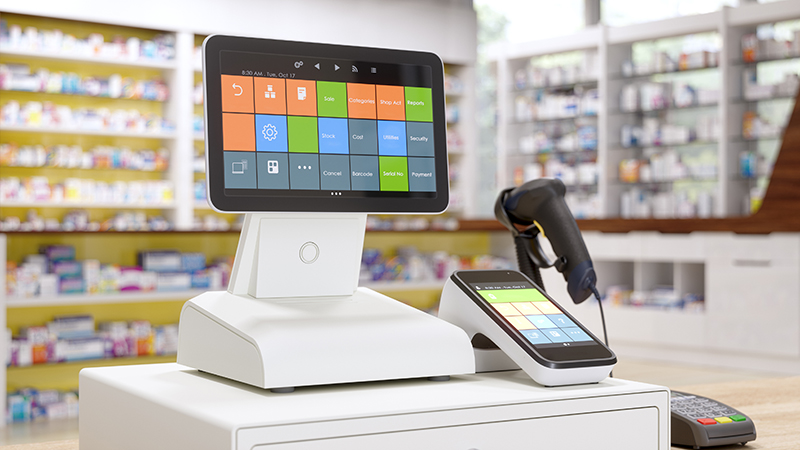Navigating Unique Challenges in the Hong Kong Pharmaceutical Industry
The pharmaceutical industry in Hong Kong stands at a unique crossroads of challenges and opportunities. Unlike any other sector, it grapples with complexities that affect its operational and strategic capabilities profoundly. While it shares some common issues with other industries in Hong Kong, such as navigating a complex regulatory environment and managing supply chain disruptions, there are unparalleled challenges solely pertinent to pharmaceuticals. A sector-specific mix of stringent compliance requirements, lengthy drug approval processes, and critical talent shortages set the pharmaceutical industry apart. Moreover, ensuring an uninterrupted flow of research and innovation adds layers of complexity that other industries might not face.
Shared and Unique Challenges Impacting the Sector
To begin with, the pharmaceutical industry in Hong Kong faces unique hurdles that other sectors don’t. The extensive and time-consuming drug approval process requires a substantial investment of time and resources, a challenge that is particular to this sector. Moreover, pharmaceutical firms often navigate strict compliance mandates, which demand a meticulous approach to ensure adherence to local and global regulations. This is not only a financial burden but also complicates operational efficiency. Talent acquisition and retention in specialized roles related to research and development pose another industry-specific challenge. The demand for highly specialized skills creates a fiercely competitive job market, unmatched by other sectors.
Meanwhile, there are challenges the industry shares with other sectors. Global supply chain disruptions, exacerbated by international tensions and pandemic-related hangovers, also impact the pharmaceuticals significantly. Additionally, like other industries, there is a pressing need for digital transformation to remain competitive and drive innovation. This necessitates an agile approach to technology adoption and integration across operations to meet evolving demands efficiently.
HCM Systems: The Game-Changer for Pharmaceutical Companies
The adoption of Human Capital Management (HCM) systems is proving to be a game-changer for tackling these shared and unique challenges head-on. HCM systems streamline regulatory compliance and aid in workforce management across specialized and diverse roles. Because of their ability to automate and organize, these systems can significantly lessen the strain associated with detailed compliance protocols that pharma firms must adhere to.
Robust HCM systems optimize talent acquisition processes by providing deep insights into workforce trends and needs, facilitating the recruitment and retention of highly skilled personnel necessary for pharmaceutical advancements. In fact, this is crucial for maintaining a competitive edge in innovation-centric sectors like pharmaceuticals. Moreover, the integration of robust HRMS software strengthens operational efficiencies by automating HR tasks related to long service payment and payroll, thus freeing up resources for more strategic endeavors.
Guidelines for Implementing an Effective HCM System
Undoubtedly, successfully implementing an HCM system in the pharmaceutical industry requires a structured approach. The first step is to align the HCM strategy with the firm’s overall objectives, ensuring it supports long-term goals. Next, securing organizational buy-in across all levels encourages smooth integration, as employees and management alike need to embrace the new HR system actively. Investing in training and ongoing support is essential for maximizing the benefits of advanced HCM software and ensuring personnel can leverage these tools effectively. Institutional support, coupled with the right technology, can catalyze a profound transformation in how pharmaceutical firms operate in Hong Kong.

Key Features of Multiable aiM18 HCM System Beneficial for Pharmaceuticals
Helps pharmaceutical firms adhere to complex regulatory standards by automating routine compliance checks.
Allows firms to adapt rapidly to changing workforce needs, ensuring compliance and efficiency.
Facilitates efficient rostering, thus improving operational productivity and minimizing human errors in planning.
Enables firms to manage complex payroll requirements effectively, supporting seamless financial operations.
Customizes performance appraisal mechanisms, ensuring fair assessments and aiding employee retention.
Multiable’s Commitment to Regulatory Compliance in Hong Kong
Multiable aiM18 HCM system stands out with its e-MPF approval, making it an attractive choice for pharmaceutical firms in Hong Kong seeking compliance with MPF regulations. By supporting MPF, IRD compliant documents, the system ensures that all long service payments and payroll processes align with local legal requisites, which is crucial for maintaining operational integrity and avoiding regulatory hiccups.
What is Multiable HCM?
Multiable HCM is a cloud-native HCM (aka HRMS, HRIS or HR system). With over 6,000 customers, Multiable HCM gains positive feedbacks from customer across different sectors, from manufacturers, distributors, retailers, service providers to NGOs. The renowned no-code approach saves customer a big sum of customization costs and countless hours of implementation man-days.
What is LAIDFU (Let AI Do for You)?
LAIDFU is an AI tool for enterprise to build their own AI agents to perform various business AI tasks.
Proprietary EKP (Enterprise Knowledge Partitioning) technology eases CEO’s concern about trade secret leakage which often occurs in most AI agents / chatbots in the market.
EKP removes the hurdle of business AI adoption by most companies in using sensitive corporate data.
Powered by no-code approach, deployment of LAIDFU incurs far less developers (and development costs) in comparison with other AI tools.
LAIDFU empowers business, with or without an HCM system in place.
Contact us

